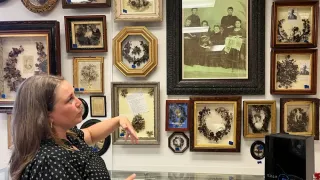
Jul 19
Fletcher Responds to Fan Reactions Over “Boy”: “I Have to Live Authentically as a Queer Woman”
READ TIME: 2 MIN.
Fletcher, known for her evocative storytelling and sapphic anthems, found herself at the center of a heated discussion this June following the release of her single “Boy” and her public acknowledgment of a new relationship with a man. The single, which debuted on June 5, immediately drew attention for its candid exploration of queer identity, bisexuality, and the challenges of authenticity in the public eye .
“Boy” marks a significant shift in Fletcher’s narrative, as much of her previous work has focused on her relationships with women—resonating deeply with lesbian and sapphic listeners. The new track, however, details the vulnerability and uncertainty that accompanied Fletcher’s decision to share her romance with a man. While many praised her honesty, others within her fanbase felt alienated, particularly those who had looked to Fletcher’s music as a rare source of femme lesbian representation .
Critics of the release cited the song’s timing—arriving at the start of Pride Month—as particularly fraught. Some fans took to social media to express disappointment, questioning whether a song about a heteronormative relationship should be positioned as part of Pride celebrations . Others were critical of Fletcher’s decision to launch “Boy” merchandise during the month, feeling that it clashed with the spirit of inclusive queer representation .
In response to the controversy, Fletcher took to TikTok to clarify her intentions and reaffirm her identity. “My queerness is not a phase. I am a queer woman. I have always identified as queer, I will always be queer ’til the day I die,” she declared. She further explained that her love for women remains a fundamental part of her identity, regardless of her current relationship status: “It doesn’t matter who I’m dating or what relationship I’m in, I will always be queer” .
Addressing the pain some fans felt, Fletcher said she understands the disappointment, especially among those who have rarely seen themselves represented in mainstream music. Still, she emphasized the importance of living authentically and not shrinking any part of herself to fit others’ expectations .
The debate surrounding “Boy” has highlighted ongoing tensions within the LGBTQ+ community around bisexual representation and expectations. Fletcher’s vulnerability in expressing sadness and fear about revealing her relationship with a man resonated with many bisexual and queer listeners, who often face erasure or suspicion from both outside and within the LGBTQ+ community .
In her interviews, Fletcher has described “Boy” as just one facet of her upcoming album, which she says will delve deeper into her journey of self-acceptance and the complexities of being a public figure navigating love and identity . She underscored that her music remains rooted in her lived experiences as a queer woman: “To be known is to open yourself up to be judged, but it also gives you permission to be free,” she told Out Magazine .
While some fans remain wary, others have voiced support for Fletcher’s honesty and her willingness to engage in difficult conversations. The dialogue sparked by “Boy” has opened up space for discussions about bisexual visibility, the diversity of queer experiences, and the need for broader representation in LGBTQ+ media and music.






